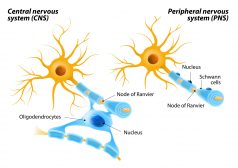Definition
noun, plural: superclasses
(taxonomy) A taxon rank subordinate to a phylum (or a subphylum) and superior to a class
Supplement
The hierarchy of biological classification has about eight major taxonomic ranks. The eight major taxonomic ranks are as follows (in the descending order of size): life, domain, kingdom, phylum, class, order, family, genus, and species. In between these major ranks are minor ranks that may be indicated with prefixes. For instance, for the major taxonomic rank class, minor ranks may include superclass (meaning above), subclass (meaning under), infraclass (meaning below), and parvclass (meaning small or unimportant).
In taxonomy, a superclass pertains to the taxonomic rank that is subordinate to a phylum, or a subphylum, and superior to a class.1 An example of this would be the superclass Tetrapoda. Tetrapoda is a taxonomic rank comprised of classes, Amphibia (amphibians), Reptilia (reptiles), Aves (birds), and Mammalia (mammals).
Word origin: super– (above) + class
See also:
Mentioned in:
Reference(s):
1 superclass. (n.d.) Miller-Keane Encyclopedia and Dictionary of Medicine, Nursing, and Allied Health, Seventh Edition. (2003). Retrieved from ://medical-dictionary.thefreedictionary.com/superclass







